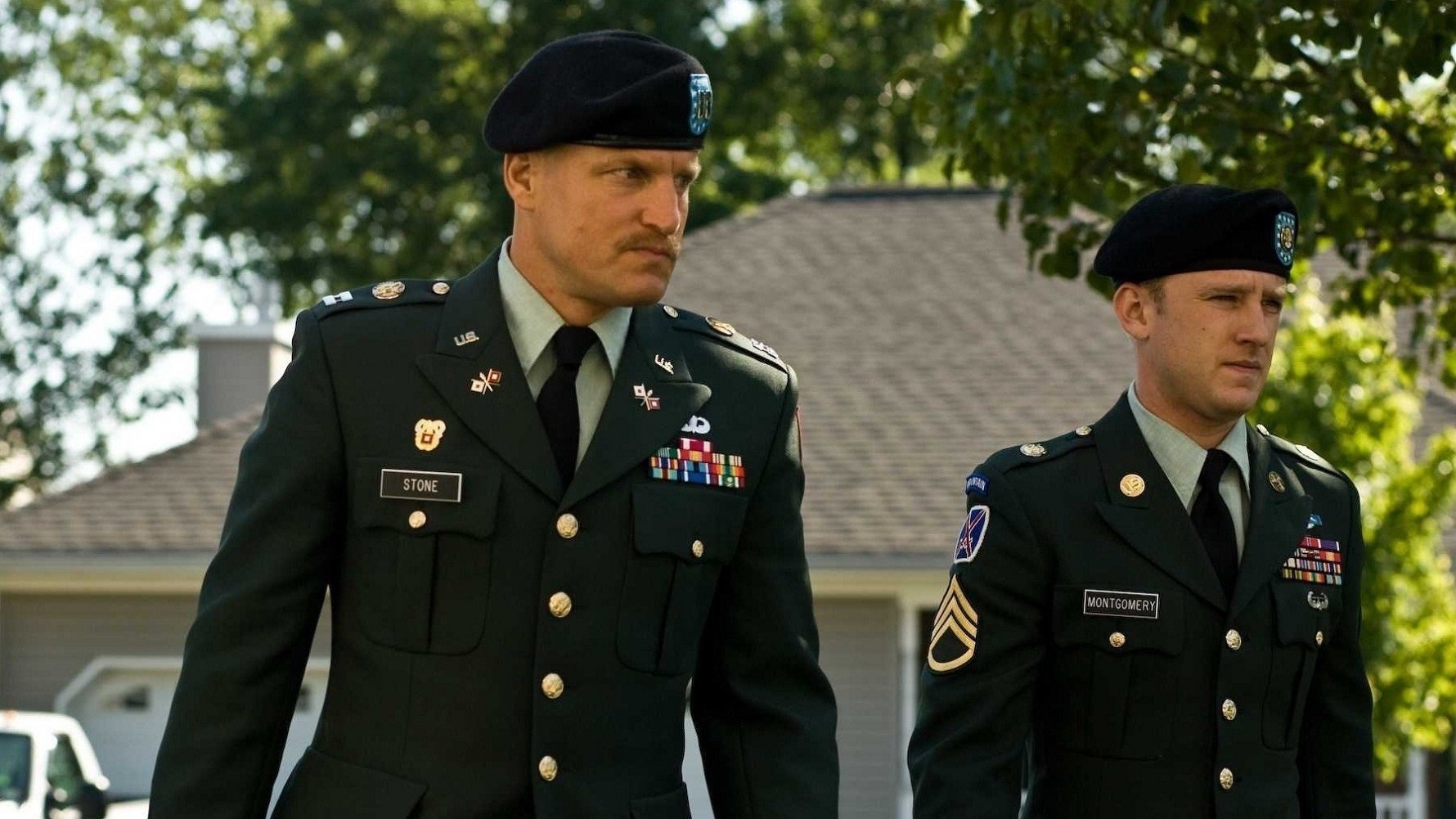
The history of Hollywood is replete with films that, despite initial praise and notable casts, have become memory-holed as cultural, economic, and political shifts occur. One such example is the 2009 drama The Messenger, directed by Oren Moverman, which offers an original and memorable portrayal of the Iraq War, a traumatic episode in US history. Although the film received critical acclaim and notable performances from its cast, it has since become one of the more obscure films of its time.
The plot of The Messenger does not focus on the war directly; instead, it delves into its harrowing consequences. The protagonist, US Army Staff Sergeant Will Montgomery, portrayed by Ben Foster, is a veteran returning from combat with physical and psychological scars. As he approaches the end of his tour of duty, he is assigned the grim task of casualty notification, working under Captain Tony Stone (played by Woody Harrelson), who mentors him in the protocols of delivering devastating news to families. Will grapples with his own issues—his battle with PTSD and the heartbreak of losing his childhood sweetheart Kelly (played by Jena Malone) to another man—while attempting to perform his duties with compassion. The emotional weight of his task becomes particularly evident after he informs Olivia Pitterson (played by Samantha Morton) about her husband's death. Ignoring orders to maintain professional distance, Will forms a bond with Olivia, contemplating a romantic connection that complicates his already tumultuous emotional state.
Produced during the final year of George W. Bush’s presidency, The Messenger emerged at a time when public sentiment had largely turned against the Iraq War, which had devolved into an unending cycle of violence, claiming thousands of American lives, something unseen since the nightmare of Vietnam War. With a modest budget yet an impressive cast, the film aims to highlight not only the physical toll of war but also the profound psychological trauma experienced by those who survive. This thematic focus aligned with a broader trend in Hollywood films that critiqued Bush’s policies in Iraq and Global War on Terror.
Oren Moverman’s directorial debut is particularly significant given his background as a veteran of the Israeli Defence Forces. His personal experiences likely inform his understanding of the profound impact that war has on families and those tasked with delivering tragic news. Moverman’s perspective lends authenticity to the narrative, allowing viewers to engage deeply with the emotional struggles faced by both soldiers and bereaved families.
While The Messenger contains little action in the conventional sense, its notification scenes are powerful and hauntingly well-acted. Each encounter between Will and the families he must inform elicits varied reactions—shock, anger, despair—creating some of the film's most memorable moments
The screenplay, co-written by Moverman and Italian writer Alessandro Camon, approaches its subject matter with an understated sensitivity that allows for rich character development. This focus on character study extends beyond Will to include Captain Stone, whose own struggles become apparent as he guides Will through this emotionally taxing process. Harrelson's portrayal earned him nominations for both a Golden Globe and an Oscar for Best Supporting Actor, underscoring the film's strong performances.
Despite its commendable craftsmanship and compelling acting, The Messenger faces challenges in its narrative structure. The script attempts to weave together harrowing vignettes into a coherent storyline but occasionally falters in this ambition. Moverman and Camon introduce a romantic subplot that, while realistic in many respects, at times veers into cliché territory—an element that feels somewhat contrived within the otherwise serious context of the film.
Despite its critical acclaim, "The Messenger" failed at the box office and quickly became one of the more obscure films of its time. Two reasons contribute to this: the film's depressive subject matter makes it an uncomfortable watch, and the public's desire to move past the Iraq War, fueled by the election of Barack Obama, led to a collective amnesia.
Compounding this obscurity is Hollywood's recent shift in its portrayal of military conflicts. In an era marked by tribalistic politics, there has been a notable reversal in how Hollywood approached the war; recent elections suggest that Hollywood celebrities have embraced policies they once critiqued. This trend raises concerns that The Messenger, which poignantly addresses themes relevant not only to past conflicts but also to contemporary issues worldwide, may become increasingly pertinent again for American audiences in the near future.
RATING: 6/10 (++)
Blog in Croatian https://draxblog.com
Blog in English https://draxreview.wordpress.com/
InLeo blog https://inleo.io/@drax.leo
Hiveonboard: https://hiveonboard.com?ref=drax
Rising Star game: https://www.risingstargame.com?referrer=drax
1Inch: https://1inch.exchange/#/r/0x83823d8CCB74F828148258BB4457642124b1328e
BTC donations: 1EWxiMiP6iiG9rger3NuUSd6HByaxQWafG
ETH donations: 0xB305F144323b99e6f8b1d66f5D7DE78B498C32A7
BCH donations: qpvxw0jax79lhmvlgcldkzpqanf03r9cjv8y6gtmk9